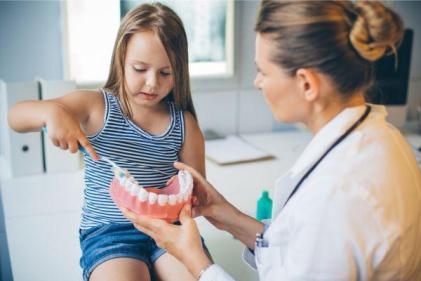Threadworms are fairly common in young children under ten, and while not a particularly pleasant topic to talk about, you are likely to come across them at one point or another, as 40 percent of children under ten get them at some stage.
Also known as pinworms, they are parasites in the large intestine that lay their eggs in the anus or vagina, usually at night. The mucus they leave makes your youngster very itchy, and when they hatch the baby worms then travel back to the bowel.
The small thread-like creatures are generally harmless, but it’s best to treat them as soon as you can as they can be quite uncomfortable.
1. How can you catch them?
Your child will get threadworms when they swallow or breathe in their eggs, usually from not washing their hands after using the toilet.
Also, when your child touches something contaminated - bedding, towels, furniture, toys, and pets - and then put their hand into their mouth they can catch them that way.
However, the only way to really be certain your child has worms is to actually look for them; check your child's poo for small, white threads or look directly at their bum - you may need a torch for this.
2. Signs your child has worms
Your toddler complaining of an itchy bottom, particularly at night-time, is one of the first signs that your youngster has them. You might also spot them in their stools or in or around their bottom.
The itching tends to be more intense at night as this is when the worm slay their eggs around the anus, leaving behind a mucus substance.
Bedwetting may also be another sign but only if the infestation is particularly bad.
3. How long do they last?
Once the eggs have been swallowed, they pass through the intestine where they hatch. About two weeks later, once they are fully grown, they then leave to lay eggs around the anus, and the cycle continues.
4. How can it be treated?
It is important you treat the worms as soon as you spot them, to stop them spreading or continuing their cycle.
Over-the-counter medicines will help kill the parasites, so head to your local pharmacists; however, but they won’t get rid of the eggs – something that will only go away with good hygiene.
In order to get rid of the eggs, you need to do the following:
- Wash all nightclothes and bed sheets in at least 40°C
- Keep fingernails short and clean
- Wash hands regularly with soap and warm water - supervise your children if you need to
- Don’t eat in the bedroom
- Change your kid’s underwear in the morning
- Put cotton gloves on your youngster
- Give your toddler a shower first thing in the morning to wash away the eggs
5. What else should you do?
You need to make sure your home is rid of them completely to start your child becoming contaminated again.
- Wash all night clothes, bed linen and toys
- Vacuum and dust your entire home
- Don't shake bed clothes as the eggs can disperse around the room
- Wipe down counters with hot water, particularly in the bedroom, the kitchen and the bathroom











